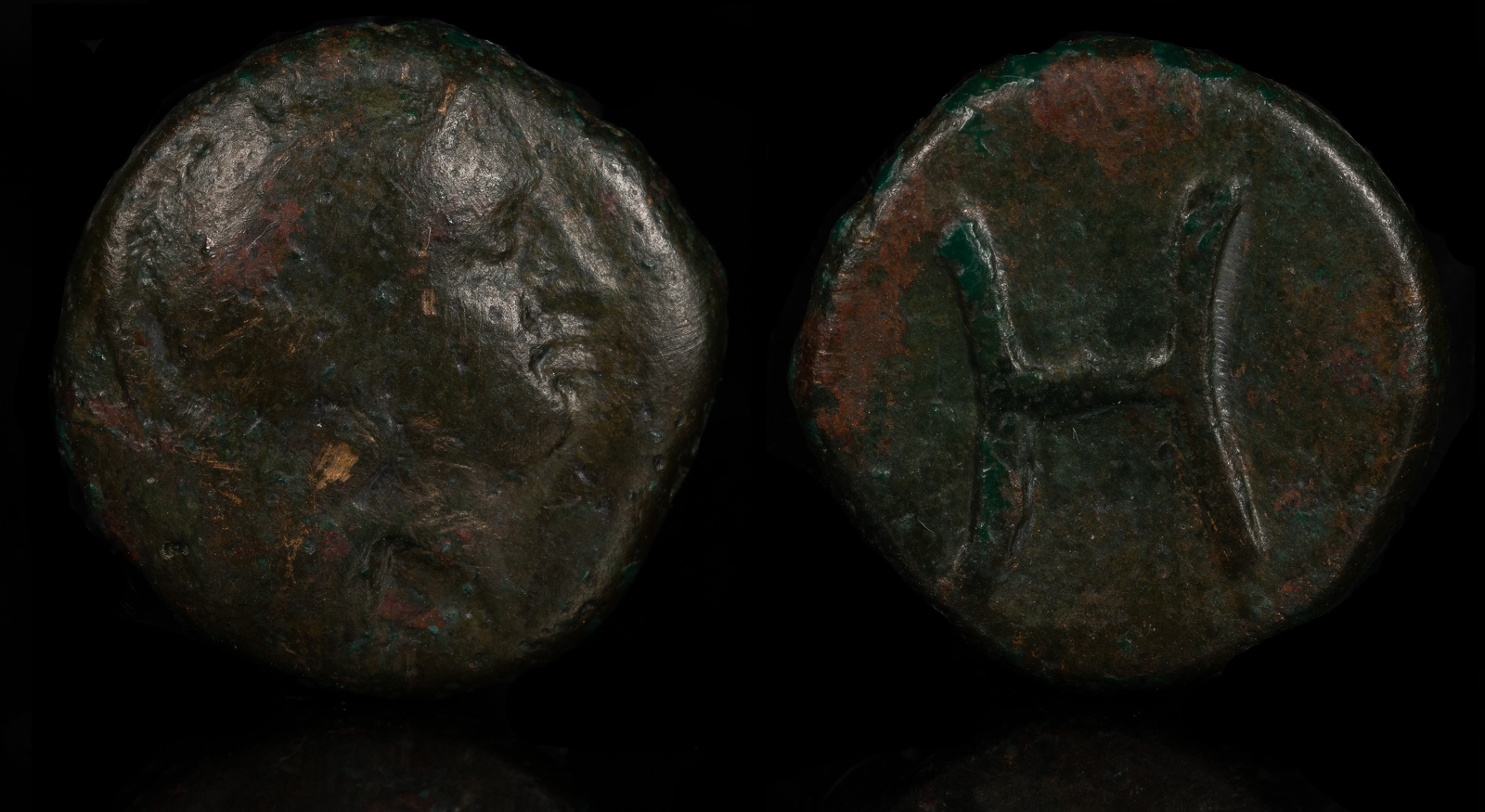
Heraia Peloponnesos
ca. 370-350 BCE
Ae Dichalkon 3.0g 14mm
Obv. Head of Athena right, wearing Attic helmet with crest
Rev. Curved-sided H
BMC 24/25
Ex-BCD Collection with tag
Legend has it that Heraia was founded by Heraios, who was one of the fifty sons of King Lykaon. Lykaon, in one of the dumber episodes of mythology, served Zeus one of his own sons roasted in order to learn whether Zeus was all-knowing.
In retribution, Zeus turned Lykaon into a wolf and restored the cooked one to life. Each of Lykaon’s fifty sons each founded a city in Arkadia. Heraios joined with his father in mixing the meat of his brother into Zeus’ meal, and was killed with his father.
Supposedly the original name of the city was Sologorgos, so perhaps Heraios did them a favor there, since that may be the least attractive name I’ve heard for a city.
Pausanias describes it as on the “right bank of the Alpheios, most of it on a gentle slope and spreading down to the Alpheios itself.” He mentions several shrines to Dionysos, a temple to Pan, and the ruins of a temple to Hera.
In 370 BCE, other Arkadian cities overran Heraia due to anger over their support for Sparta. This coin is dated to right after that period, and given that I cannot find any records for a temple to Athena, I wonder if her presence is due to a temporary forced relationship with Athens. On the other hand, there is no owl on the coin – just a big ‘H’.
The athlete Damaretos of Heraia was from (you guessed it) Heraia. He won the first race in armor at the Olympics.
Strabo mentions Heraia as barely existing anymore in his time.
Heraia signs a treaty with Eleian cities for mutual protection and support for 100 years.
King Agis of Sparta falls sick at Heraia. He is brought back to Lakedaimon, where he dies.
The territory of Heraia is laid waste by Arcadian cities due to Heraia’s support for Sparta.
The Theban general Epaminondas intervenes in Arcadia to support the Arcadian League and the newly founded city of Megalopolis. Heraia is pressured to join the Arcadian League but maintains a pro-Spartan stance.
Heraia joins the Aetolian League.